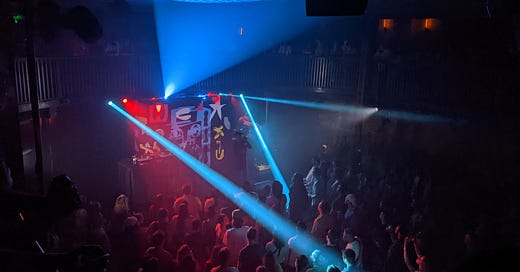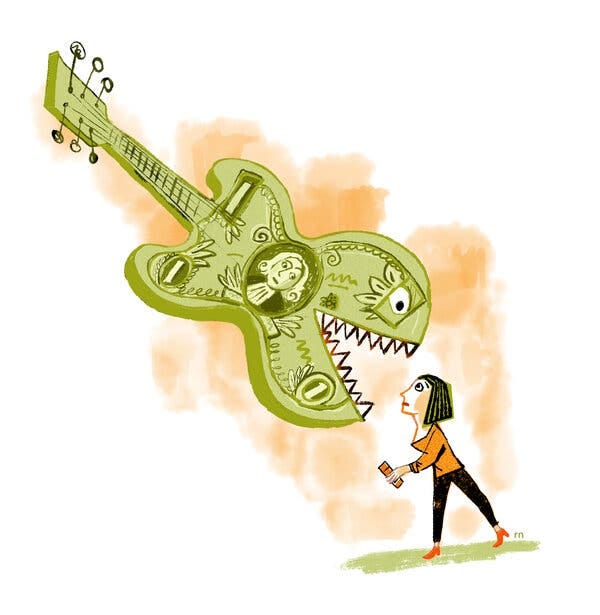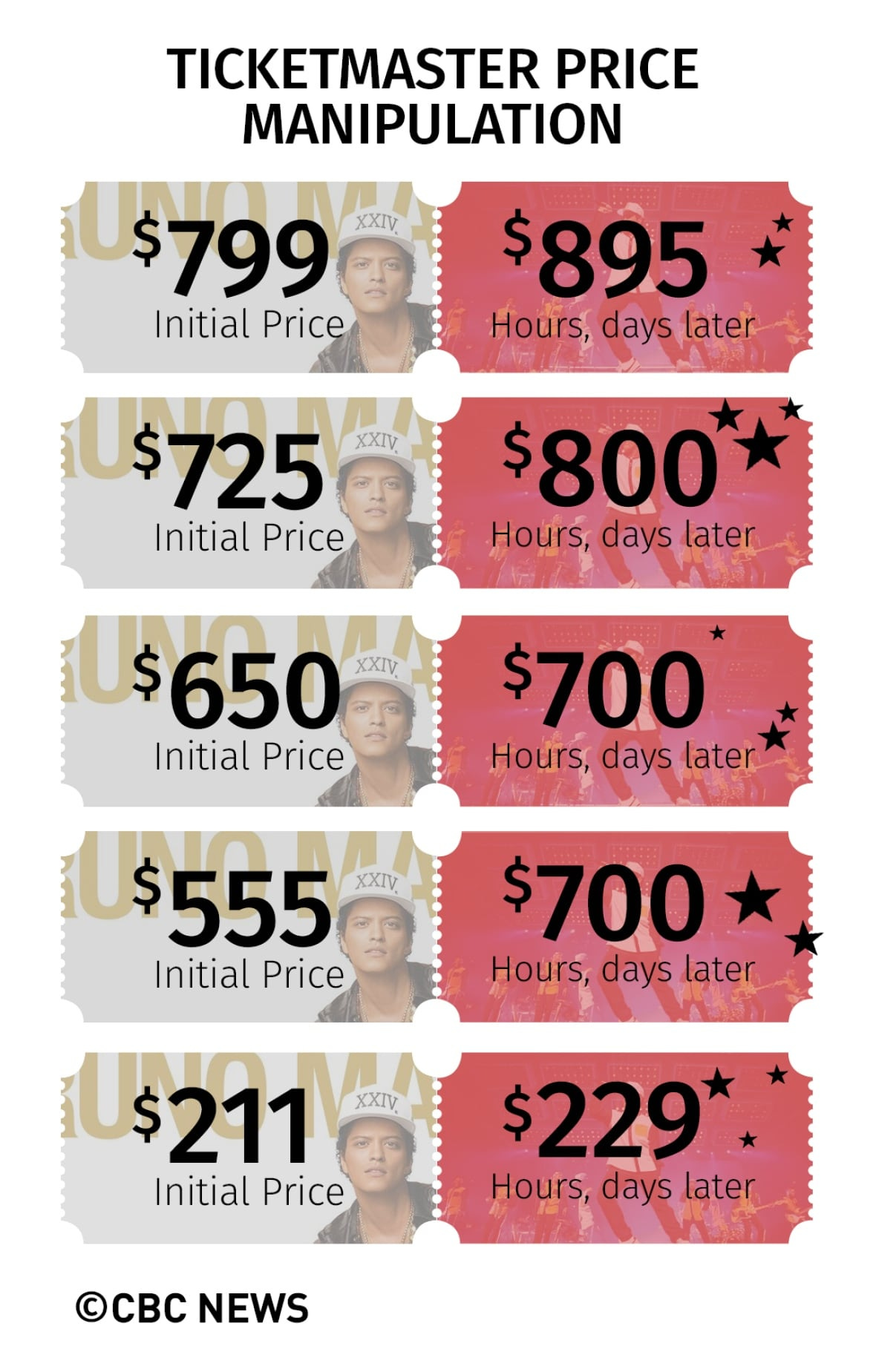A rant on why Ticketmaster and Live Nation threaten the Live Music Ecosystem and arts and culture everywhere
Sometimes I get angry on Twitter 🤷🏽♂️🎵💻
Disclaimer: The writing below represents my opinions, views, and thoughts. They are not a reflection of my employer.
It’s been a while since I last sent out a newsletter. I got back from vacation at the beginning of June and I’m now just settling into my full-time job. I’m trying to enjoy the summer with the little money I’m making (after my bills) 😭.
I’ve got a couple of ideas coming up, but this post comes from a Twitter rant I posted a couple of weeks ago. It was pretty much complete, I just needed to flesh it out a bit. So I hope you enjoy.
I’ve been watching some Jane Austen movies over the past few weeks, including Persuasion on Netflix and the 1995 BBC version of Pride and Prejudice. Here are a few thoughts:
Persuasion (dir. Carrie Cracknell, 2022) ⭐⭐ (Letterboxd Review)
I so very much wanted to like this film. I'm the biggest sucker for rom-coms. It's Jane Austen meets Bridget Jones meets Fleabag meets Bridgerton. Dakota Johnson breaks the fourth wall and makes inside jokes with the audience. And HENRY GOLDING.
Instead we get Wentworth the wet noodle and absolutely no chemistry. At least Mary was hilarious. And we got to gaze upon Henry Golding's attractiveness.
Other than that, the film was a complete flop.
Pride and Prejudice (BBC, 1995)
Isn’t Colin Firth as Mr. Darcy so dreamy? Swoon.
A rant about Ticketmaster and Live Nation
In the past few weeks, tickets have gone on sale for Drake’s OVO Fest and Paramore in Toronto, and Bruce Springsteen’s tour internationally. In all three cases, the tickets reached exorbitant prices online — reaching hundreds of dollars, sometimes thousands of dollars. In all three cases, tickets were sold on Ticketmaster using a new feature called “dynamic pricing.” In all three cases, there was outrage — including from me.
I believe that the monopoly of Ticketmaster and Live Nation is one of the biggest threats to the global music ecosystem. They are putting live music out of reach for fans and exacerbating income inequality. Their digital tactics threaten arts and culture everywhere.
This is my rant about Ticketmaster and Live Nation, expanded from a Twitter thread I posted a few weeks ago. Admittedly, I’m not an in-depth researcher on this topic and I’m only writing this on the side from the perspective of a fan, so I welcome any fact-checks if I’m wrong.
This is not to downplay the issues behind streaming services killing musicians’ revenue and urban redevelopment pushing out musicians from communities. The current state of the music industry is making it hard for artists to make a living (unless you’re part of the 0.1% of musicians). Ultimately, Ticketmaster/LiveNation, Spotify/Apple Music/streaming services, and urban redevelopment – they’re all connected by exacerbating income inequality and threatening livable and cultural communities.
What I mean here is that live music — the collective ritual of gathering and sharing emotions through music — is being threatened by corporate greed exacerbated by digitalization. Yes, this type of exploitation existed long before today’s age (see the new Woodstock 99 documentary series on Netflix). But monopolization and “innovative” digital manipulative tactics are new — and it’s only getting worse.
To understand why this is happening, we need to understand what Ticketmaster and Live Nation do and go back more than a decade ago. I’m going to skip past previous fights between Pearl Jam vs Ticketmaster. I want to focus more on recent events and tactics that got us to where we’re at now, rather than Ticketmaster’s whole controversial history.
Most live music fans know who Ticketmaster is. Ticketmaster is the world’s biggest ticketing platform, where fans go to their website or app to buy tickets to see their favourite artists (or sports teams) perform live. It dominates the ticket marketplace, with an estimated 80% (or more) of total tickets are sold. They’ve also recently cornered the resale market, traditionally the domain of scalpers and Stubhub, by launching their own “verified resale” feature.
Live Nation is a little harder to understand, but I’d wager many live music fans have at least seen or heard about Live Nation’s brand (and its controversies). The company is a live music promoter, festival organizer, and venue owner, consolidating many aspects of the live music ecosystem under one roof. Basically, many of the live concerts of the largest bands these days are run by Live Nation. You can’t get away from them, and that’s by design.
So what happened? In 2009, Ticketmaster and Live Nation agreed to merge their businesses and bring basically every function of the live music ecosystem (concert promoter, venue owner, and ticket seller) under one firm. Plain and simple, that is a monopoly. With the dominance of Ticketmaster and Live Nation in their respective domains, they absolutely control the live music ecosystem — and as I’ll explain below, abuse their power without much constraints.
When the merger deal was announced, it was opposed by many artists, people in the music industry, and fans, arguing that the merger would lead to higher ticket prices, lower artist revenue, and other anti-competitive behaviour. Yet, the Obama Administration allowed the merger to go through in 2010, with certain conditions. As we can see, it wasn’t enough. We’re now seeing the consequences of that merger.
Here’s the current framework of how Ticketmaster/Live Nation works: Live Nation controls promoters and venues all over the world, as well as large music festivals like Lollapalooza and Bonnaroo. And those promoters and venues all exclusively use Ticketmaster. If you want tickets for any musician playing at a venue owned by Live Nation or any event promoted by Live Nation, you have to use Ticketmaster — no ifs, ands, or buts. For example, from what I understand, if the musician or game is being held at Toronto’s Scotiabank Arena, it has to go through Ticketmaster.
And this goes for artists too, not just fans. If you’re an artist of a certain size, there’s only so many venues you can play on the “venue ladder.” If you’re Beyonce or Adele or Lady Gaga, you can’t play at the Horseshoe Tavern, considering your fanbase. You have to choose one of the big arenas: Scotiabank Arena, Rogers Centre, or Budweiser Stage. And guess what? All of those venues are exclusive to Live Nation/Ticketmaster. Artists can’t get away without using Ticketmaster.
That exclusiveness of Ticketmaster and Live Nation on many (or most) venues and promoters worldwide means Ticketmaster can impose whatever fee structure or policies they want, passing those price increases to music fans while making major profits. It’s very clearly a monopoly in the ticket sales industry, abusing their power freely at the expense of fans.
But more than the simple economics of TM/LN abusing their monopolistic power to increase ticket prices, they’ve also launched many features over the past decade to continue to consolidate that power. Take for example the ticket resale market. As I said above, Ticketmaster saw that competitors like Stubhub, Facebook, or even your regular scalpers owned the resale market. But because tickets are sold and hosted on their platforms, they can block sellers from transferring their tickets easily. Their justification is that their platform verifies tickets, arguing fans won’t be scammed for fake tickets. But their resale platform ridiculously jacks up prices while charging service fees twice! And not only that, these service fees are rising every year, adding up to a big chunk of a fan’s final price for the ticket.
Adding on top of that, automated bots and professional scalpers keep buying up multiple tickets at their original prices to resell them at higher prices to make profit. Fans have been complaining about scalpers for forever, but the automation of this process has only made it worse. On this point, Ticketmaster has argued that features like their resale market and other verification features have done very little to effectively address the issue of bots and scalpers. These vultures continue to take advantage of fans, while Ticketmaster’s supposed “solutions” have just made things more complicated — including leading to their newest feature of “dynamic pricing”.
In recent years, Ticketmaster has invented new digital tactics to increase profits. The latest controversy has been around the new “dynamic pricing” system that has made tickets even more out of reach for fans financially. With this system, there is no “face value” for tickets as there once was. When fans login to Ticketmaster’s website or app to buy their tickets on the day of, the algorithm measures the demand for tickets to inform how high they can set their prices. And with every minute, every hour, every single time a ticket is bought and sold on the platform, the prices go up and up and up. Those tickets then get resold by scalpers on Ticketmaster’s own platform even more ridiculous prices. Fans just get screwed altogether.
This feature isn’t new apparently. In 2018, CBC News and the Toronto Star conducted an investigation into Ticketmaster’s tactics with the sale of tickets for Bruno Mars’ Toronto show. It’s only now, after the pandemic with big events like Drake’s OVO Fest and Bruce Springsteen’s tour, that this is coming to light and becoming a big controversy. And make no mistake, Ticketmaster and Live Nation can get away with doing this because they have a stranglehold on the live music ecosystem.
In response to the 2018 investigation, Ticketmaster said this: “[We are] a technology platform that helps artists and teams connect with their fans. We do not own the tickets sold on our platform nor do we have any control over ticket pricing — either in the initial sale or the resale.” It’s hard to believe their statement at “face value” (excuse the pun) when all of the evidence says otherwise. Even CBC News/Toronto Star’s reporting on Ticketmaster’s “reports to shareholders, Ticketmaster hopes to boost profits with its ‘market-based pricing,’ which changes according to supply and demand ‘to price tickets closer to their true value.'”
Is this just simple economics? Ticketmaster/Live Nation allowing supply and demand market forces to work itself out while they collect all of the profit? Maybe it’s as simple as your Economic 101 textbook. But that’s not how markets work naturally. Allowing TM/LN to take all of the profit on the initial and resale markets AND increase their profit by gouging prices, double-dipping on service fees, and screwing over fans is not normal for a capitalistic firm in a competitive market. This is happening because TM/LN have a monopoly on the market and policymakers won’t do anything to stop it.
I should also take some time to mention other controversial issues that Ticketmaster and Live Nation are responsible for. Live Nation has been responsible for many controversial safety issues at their shows over the years. In 2012, Live Nation promoted a large sold-out outdoor show for Radiohead at Downsview Park in Toronto. Hours before the show, the stage collapse, killing one sound tech and injuring multiple others. Live Nation was charged by the Ontario government for violating the province’s Occupational Health and Safety Act. More recently, at Travis Scott’s Astroworld festival in Houston in 2021, 10 people died with many more injured when the crowd crushed and trampled each other. Live Nation was accused of overselling the event and failing to maintain crowd control. According to an investigation by the Houston Chronicle in the aftermath of the incident, “Live Nation Entertainment and its subsidiary Live Nation Worldwide have been linked to at least 750 injuries and around 200 deaths at its events in seven countries since 2006.” Live Nation is more dangerous than just its power to manipulate the live music market.
Ticketmaster had also played around with the idea of using facial recognition at shows. Their justification: verifying that fans who bought the ticket are the same fans who show up at the show. This just leads to even more pervasive digital biometric surveillance and could lead to “police harassment, misidentification, and discrimination at concerts,” thus violating fans’ rights and freedoms — just because they wanted to see their favourite music artists live and share music collectively.
I haven’t thought much more on this issue and I don’t work in this policy space. I don’t have any real solutions here, other than to break Ticketmaster/Live Nation’s monopolistic abuse of power. Clearly, regulation is lacking in this industry. And policymakers need to have a multi-faceted approach to addressing these issues. Anti-competitive behaviour is one thing, but a potential regulatory framework needs to also address the resale market, bots and scalpers, “dynamic pricing,” health and safety at shows, and banning biometric surveillance.
As a music fan and a frequent live music goer, I’m enraged by this issue. Something needs to be done or else arts and culture will be out of reach financially for most fans. Live music will only be the domain of those who can afford it. Yet again, the rich dominate and the rest of us flounder. We need to tackle income inequality altogether to save live music.
P.S. If you’re looking for another explainer video about Ticketmaster, you should watch John Oliver’s recent segment about this issue!
Read the full piece at https://blog.angelogiomateo.ca/blog-post/a-rant-ticketmaster-and-live-nation/
Hope dangles on a string
Like slow-spinning redemption
Winding in and winding out
The shine of it has caught my eye
I feel like every Millennial who grew up watching the 2000s Spiderman knows this classic. I feel like it was maligned over the years as a cheesy song, but tbh, it’s a classic emo banger.







